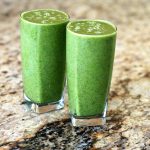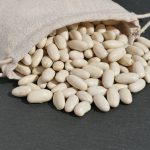Apple cider vinegar (ACV) is a vinegar made from fermented apple juice. It’s often added to salad dressings, preservatives, marinades, and more. It is also used as a traditional home remedy that is touted as having a wide range of beneficial health effects. Everything from acid reflux, sunburn, and even some types of cancer are believed to be treatable with ACV.
While many claims about it have been debunked or are lacking in evidence, a few studies have shown benefits for several conditions, including type 2 diabetes and high blood pressure.
In addition, apple cider vinegar is also used by some to perform at-home teeth whitening. While using solutions with ACV may have a bleaching effect on your teeth, it can harm the enamel (the hard outside shell) and may have other health effects.
Why Are My Teeth Yellow?
With age and due to eating and drinking oral habits, despite brushing regularly, flossing, rinsing teeth with fluoride, comes the trouble with teeth discolouration. Teeth eventually fade into a yellow, dark yellow, brown and grey colour.
Sometimes they are also affected by brown stains, marks, lines, plaque, resulting in teeth caries and more problematic dental diseases. According to the WHO (World Health Organization) almost half of the global population (3.5 billion) suffers from oral diseases. A lot of people wonder ‘why are my teeth yellow when I brush them every day?’
There are many factors that can make teeth yellow, some of them are age, drinking coffee or wine, chewing tobacco or bad oral hygiene The unfortunate stains and discoloration can cause additional stress and stop us from being ourselves – with no confidence to smile.
What Causes Yellow Teeth?
Paradoxically, the first place among teeth-staining substances doesn’t belong to sugar. Do you remember the coffees, teas, glasses of wine, soda you’ve had this month alone? Coffee, tea and wine are the most frequent reasons for dirty and stained teeth.
This is because some of the foods and drinks like coffee and tea contain high amounts of controversial tannins – or else known as tannins, biomolecules present in many plant foods, which buildup on tooth’s enamel changing its color.
Interestingly enough, a strong black tea has a more negative impact on your teeth than a strong coffee, so currently, it’s no. 1 culprit according to many sources. Eating spicy foods, sauces, ketchup leaves stains and marks on your teeth, because of the acids contained in the food, which soften the enamel and change its color. The same applies to energy drinks and carbonated drinks like sodas.
In fact, there are many spicy and sour foods, or drinks containing tannins, or the so-called chromogens – chemical compounds easily converted into pigment in a chemical reaction – which cause teeth darkening. Dark chocolate, walnuts, almonds, blueberries, strawberries, raspberries, and blackberries contain chromogens in particular.
Some of these foods and drinks build up on your teeth and produce plaque which also changes the color of your dentition. The tooth-protective layer – enamel – also thins with time and use. Smoking or bad physical oral habits like biting, chewing, grinding your teeth too often may result in its quickened disappearance and thus dental problems.
Surprisingly, another cause for bad teeth condition and discoloring is overusing fluoride on your teeth. Some people think that rinsing the mouth with a fluoride mouthwash alone can stop teeth color deterioration and decay, however, this may result in opposite results.
Furthermore, an obvious widespread cause for teeth discolouration is smoking – which is really deadly to your teeth, resulting in the so-called smokers’ teeth. One might conclude that if you smoke, you should get ready for dental problems. To conclude, the following list includes the main culprits of teeth stains, darkening, discoloring.
Surprisingly chewing gum didn’t make it to the below list of detrimental to teeth agents. How is this possible? According to the American Dentist Association (ADA) sugar-free gum proved to increase saliva and its circulation, which in turn removes weakening tooth enamel plaque acids from the oral cavity – and thus reducing the possibility of tooth decay.
- Age – natural depletion of enamel due
- Smoking or chewing tobacco – in comparison, e-cigarettes are almost non-detrimental
- Tea and Coffee owing to tannins, with coffee holding second place
- Wine
- Carbonated drinks like Cola, energy drinks, sport drinks, – all sodas are acidic, some contain chromogens and sugar
- Acids and Spices like highly pigmented Curry, tomato juice, dark fruit juices like grape, cranberry, prune juices, blueberries and blackberries (as well as cranberries, red grapes, oranges, lemons, limes, and pomegranates)
- Sugars, candy
- Poor, or bad oral hygiene
- Too high or long exposure to fluoride – causing fluorosis, dangerous
- Bad, stress-related physical oral habits like teeth clenching, biting nails, or objects, grinding, bruxism. Also, a too hard toothbrush can be detrimental – in a natural manner physically wear down your teeth enamel
- Plaque build up
- Illnesses that decrease the healing rate of the organism, or processing sugar in blood like diabetes, enamel hypoplasia, celiac disease
- Hormones during puberty, pregnancy, and menopause
- Medicines influencing the production and flow of saliva in the mouth, antibiotics, glibenclamide, chlorhexidine (present in mouthwashes)
Knowing these threats doesn’t immediately imply a complete elimination of these from your diet, because all of these causes of teeth discoloration are difficult to follow and monitor in your daily eating and drinking routine.
The first, small step, is to try to avoid the discoloring substances and using them smartly – not too often or in large quantities. Another one is good oral hygiene – which is rudimentary – the moment you stop brushing your teeth, the condition of your teeth decreases along with their color.
Does ACV Whiten Teeth?
Like other kinds of vinegar, ACV is highly acidic. The acetic acids in vinegar have a well-documented bleaching effect; regular treatments can effectively clear away some areas of staining and discoloration.
Additionally, as vinegar has an antimicrobial effect, ACV may help take on bacteria that form on your teeth. This means it may help take on plaque and tartar, which are frequent causes of tooth discoloration.
Typically, dentists recommend other methods of home teeth whitening as they tend to be more effective. Of course, there are also limitations to what you can do at home, and nothing will work better than having this done professionally.
Risks
Dentists are likely going to recommend against whitening your teeth with ACV. Though it may help brighten your smile, alongside other methods, the risks may outweigh the benefits. Prolonged exposure to ACV can damage tooth enamel, affect how your throat feels, and even interact with medications you’re taking. It’s important to understand these risks.
Erosion
The primary issue with using ACV for teeth whitening is its effect on your tooth enamel. Like acidic beverages, such as soda or coffee, apple cider vinegar can cause this outer layer to weaken and erode. Tooth erosion can lead to a host of dental issues, including:
- Tooth sensitivity to hot or cold
- Yellowish discoloration
- Damage to dental fillings
- Increased risk of cavities
- Tooth loss
Throat Burn
Another potential issue with vinegar intake is throat burn. If you take too much or are unsafe about it, the high acidic content in ACV can injure the tissues of your esophagus (the inside of your throat) and cause stomach distress.
In turn, this can cause you to have nausea, pain, and discomfort, and you may vomit blood. Notably, high acidic content in the stomach can make tooth erosion worse.
Daily Intake
Specific dosages of ACV depend on the health condition being taken on. That said, overconsumption can be problematic; the greater the exposure, the greater risk there is of dental erosion, throat burn, and drug interactions. Aim for no more than 2 tablespoons (tbsp) a day (about 30 milliliters (ml) diluted in water, mixed in with salad dressing, or added to meals.
How to Use ACV Safely
While the overall risks of ACV are mild, it can still damage dental and esophageal health when it’s highly concentrated. The risk of tooth erosion and other issues rises considerably when you use undiluted solutions regularly.
If you do want to try ACV to whiten your teeth, here’s what you can do to minimize the risk of damage:
Dilution
Mix 1 part apple cider vinegar with 2 to 3 parts warm water. You may have to adjust the combination as the acidity of the previous one can range between 4% and 8%. Make sure you know what you’re working with. Some add baking soda to the solution.
Swishing
Just like when you gargle mouthwash, keep the solution in your mouth and swish it around for around 20 seconds before spitting it out. You can repeat this a couple of times.
Cleaning
After gargling with ACV, be sure to brush your teeth and rinse your mouth with water. You should avoid allowing acids from the liquid to remain on your teeth for an extended period.
Home Remedies for Teeth Whitening
Using ACV is one of a couple of other home remedies for tooth stains and plaque build-up. Other at-home methods of teeth whitening include:
Teeth whitening strips
One can purchase a vast selection of teeth whitening strips or trays over the counter or online. These products are made with carbamide peroxide which is composed of hydrogen peroxide and can lighten one’s teeth. The gadgets must be used in the manner specified and should be operated for around 35 to 40 minutes a day.
Hydrogen peroxide
Hydrogen peroxide can break down the compounds that cause discoloration, but, like with ACV, it’s best to dilute it in water first. While a diluted solution swished as a mouthwash may help, gels or strips that employ hydrogen peroxide will likely work better.
Baking soda
Often an ingredient in toothpaste, baking soda may also be helpful for tooth whitening and cleaning. This is mixed with water to create a paste to brush with. However, make sure to keep up with regular tooth brushing, too, so that your teeth get enough fluoride.
Oil pulling
Oil pulling, a technique with Indian roots, involves taking a tablespoon of an oil (such as sunflower oil) and swishing it around the mouth for anywhere between 15 and 20 minutes every day. Unfortunately, there’s little evidence that this yields any benefits.
Summary
Most NHS dentists do not provide teeth whitening as a cosmetic procedure, so people tend to resort to trying their own natural methods at home or buy kits off the internet. For some people, these will provide a solution, but unfortunately not for everyone.
ACV is a type of liquid produced from the fermentation of apple juice, which is generally safe if it is ingested within a sensible amount, for instance in salads or marinades. It is not suggested to utilize apple cider vinegar for teeth whitening because of its high acidity. It is recommended that you dilute the solution and clean your teeth afterward if you are going to use it.
Other options for improving the whiteness of your teeth include using whitening strips, hydrogen peroxide, or baking soda. Talk to your dentist before attempting any type of teeth whitening method. They will give you advice about the most suitable approach for your dental health requirements.
Nevertheless, there are more secure possibilities available in the comfort of your own home, and undoubtedly other aspects of admirable oral hygiene—remaining consistent with brushing and flossing, and maintaining periodic cleaning—can assist to upgrade your smile. It is essential to pay attention to both the look and wellbeing of your teeth.
READ MORE: 23 Uses Of Apple Cider Vinegar









